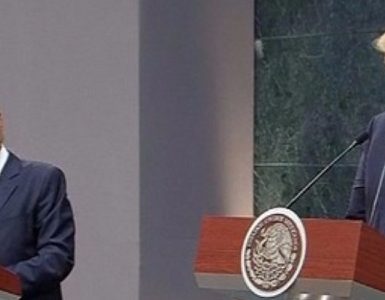MIAMI — The United States cannot deliver on an America First agenda unless it elevates the Americas, keynote speaker Eric Farnsworth told attendees at Nexus Miami last week. The senior associate of the Americas Program at the Center for Strategic and International Studies and former U.S. State Department official said nearshoring critical industries and tightening hemispheric partnerships are now strategic necessities — not optional diplomacy.
“There’s more global turbulence now than most of us can remember,” Farnsworth said. “But the opportunity to do business in the Americas is arguably greater than ever. You cannot achieve America First priorities without putting the Americas first.”
Farnsworth’s remarks framed a hemisphere-inward policy shaped by shifting Washington politics and intensifying competition with China. He said voters across the spectrum feel weary of paying to uphold the postwar global order. Against that backdrop, he argued, the most pragmatic path to security, resilient supply chains and domestic job growth runs through North and Latin America.
Nearshoring Chips and Health Care
Farnsworth urged companies and policymakers to prioritize nearshoring in the Western Hemisphere, citing fragile semiconductor and medical-supply chains. The concentration of advanced chipmaking in East Asia, he said, leaves the global economy exposed to conflict or export restrictions.
“Chips are in virtually everything — cars, appliances and national defense,” he said. “If supplies are interrupted, the consequences are immediate.”
He pointed to Costa Rica’s semiconductor roadmap as a model and said Mexico, Guatemala, the Dominican Republic, Panama, Argentina and Paraguay can also compete if they align tax policy, infrastructure, clean energy and human capital with investor needs. First movers, he said, will be better positioned, and supply-chain strategy will sit at the center of the coming USMCA review and potential expansion.
Health care should follow a similar path, he added, recalling the scramble for PPE in early 2020.
“Let’s not pretend another pandemic won’t occur,” he said. “When we need equipment, do we rely on China — or build reliable access across the Americas?”
Policy Signals and Predictability
Farnsworth said Washington’s political realignment — particularly a harder line on tariffs and trade — creates both risk and urgency for business. He urged stability and clarity on tariff policy and warned that frequent, unilateral changes erode corporate planning.
“Businesses can adapt to almost anything if they know what’s coming,” he said. “What they can’t manage is day-to-day policy whiplash.”
He noted that the administration’s legal basis for broad tariffs is likely to face court scrutiny and said a search is underway for alternative authorities if emergency-powers justifications are narrowed. Regardless of elections, he said, the bipartisan embrace of economic nationalism suggests today’s trade posture will not swing back quickly.
Farnsworth welcomed new leadership at the U.S. International Development Finance Corporation, calling the DFC an essential tool for catalyzing strategic investment in the hemisphere. He contrasted that with China’s state-directed infrastructure push and said the United States needs a more muscular — yet transparent — investment posture to compete.
“Actions speak louder than words,” he said. “Leaders will choose partners who show up.”
Mexico, Venezuela and Regional Politics
On Mexico, Farnsworth said the relationship with the United States is unique and too interwoven to ignore — economically, socially and on border security. He credited recent cooperation on extraditions and border management while acknowledging tensions over tactics and tone.
“The best thing both sides can do is keep the conversation going,” he said.
He described U.S. actions against drug trafficking as part of a broader homeland-security lens and suggested that labeling certain cartels as terrorist organizations could expand authorities for targeted operations — a move that raises legal and diplomatic questions across the region.
In Venezuela, he avoided predictions but said last year’s disputed election keeps legitimacy questions in play. Any stepped-up U.S. actions, he said, would likely stop short of invasion and focus on discrete targets tied to trafficking or corruption.
The Americas Act and a Wider USMCA
Farnsworth called the proposed Americas Act both symbolic and practical — a bid to counter China by deepening economic links across the Western Hemisphere. Among other provisions, he said the bill could open a path for select countries to accede to or align with USMCA disciplines, narrowing the gap between investing in Mexico and investing in neighbors such as Guatemala or the Dominican Republic. He also argued for reversing punitive tariffs on critical minerals from allies to avoid pushing them toward China.
A Business Case Wrapped in Geopolitics
For corporate leaders, Farnsworth’s advice was twofold — hedge for policy uncertainty and press Washington, regardless of party, for more straightforward, durable rules. He underscored the high U.S. content embedded in Mexican exports as proof that Western Hemisphere integration directly benefits American workers.
“Forty cents of every dollar exported from Mexico to the U.S. is U.S. content,” he said. “If you want to create jobs in the United States, move your supply chains to the Americas.”
He closed with a reminder that momentum alone is not a strategy.
“Even if you’re on the right track,” he said, quoting Mark Twain, “you’ll get run over if you just sit there.”









Add comment